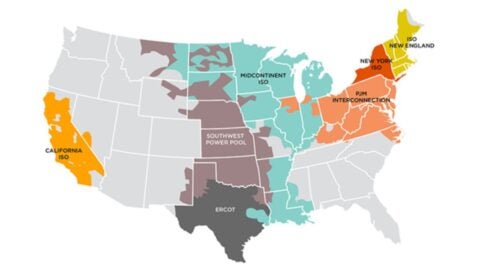Emergency Funding for Public Transit Crisis
 This post is by Michael Replogle, Transportation Director at Environmental Defense Fund.
This post is by Michael Replogle, Transportation Director at Environmental Defense Fund.
Today, the New York City MTA proposed another fare and toll hike to manage a projected $900 million deficit next year. To avoid service cuts, according to WNYC, MTA head Lee Sander is "going begging everywhere, to Governor Paterson, Mayor Bloomberg, the federal government, and riders."
But in many other cities across the country, service cuts due to budget shortfalls are unavoidable. Ironically, communities are cutting services just when use of public transit is at a 50-year high due to skyrocketing gasoline prices (see map).
To avoid cutting these crucially important services, public transit systems urgently need federal help.
Consider this plea for help from the State of Pennsylvania:
Public transit systems … are experiencing increased ridership. … However, Pennsylvania lacks a stable, dedicated funding source for public transit and revenues fail to keep pace with operating costs. … Without a dedicated funding source, many of Pennsylvania’s 73 public transit systems will be forced to make drastic cuts in service that will have a negative economic affect on local economies because workers will have difficulty getting to jobs, schools, doctor’s offices and stores.
The same thing is happening in Cleveland. According to the Regional Transit Authority head Joe Calabrese, ridership is up 10 percent, but fares don’t cover the cost of diesel fuel:
We may have to cut more service because we have to pay for the diesel fuel.
This is happening all across the country. Many transit systems depend on revenue from local sales and real estate taxes, and these funds have been plummeting due to the national recession. Public transit systems are in crisis.
Three bills to fund public transit have been introduced in the House:
- Flexibility Incentive Grant Pilot Program (H.R. 1606 – Rep. Matsui, D-CA)
- Saving Energy Through Public Transportation Act (H.R. 6052 – Rep. Oberstar, D-MN)
- The Transportation and Housing Options for Gas Price Relief Act (H.R. 6495 – Rep. Blumenauer, D-OR
The Oberstar bill was passed by the House last month and referred to the Senate, which has not yet decided whether to consider it. The other two bills are still pending in the House, and each have features that would improve the final bill.
The Matsui bill, for example, says that states should allow motorist user fees and gas taxes to be applied to public transit – something that many states do not currently allow.
The Blumenauer bill, introduced only last week, supports new transit alternatives and improved urban planning, as well as current transportation options. It would allocate funds to:
- Expand public transportation to help transit agencies deal with
high fuel prices. - Encourage pay-as-you-drive auto insurance policies that discourage driving by rewarding low mileage drivers with lower insurance premiums.
- Reduce commuting costs by providing incentives to employers and employees to take transit, bicycle, carpool, walk, or telecommute to work.
- Help local governments manage transportation demand, and create walkable, bikeable communities that are well-served by transit.
- Educate consumers on the environmental, energy, and economic benefits of transportation alternatives versus the single occupancy vehicle.
- Spur the availability of "Location Efficient Mortgages" that discourage excessive driving from urban sprawl by making home ownership near transit more affordable.
We hope that the Senate will take up the Oberstar bill that was passed in the House, and improve it with features from these other bills. There could be no better economic stimulus package than a bill to support affordable transit choices for working Americans.
A shift towards public transit can save Americans money, stimulate the economy, reduce dependence on foreign oil, alleviate traffic congestion, and reduce global warming pollution – and it’s already happening. Congress can make a big difference just by supporting local governments so transit systems can keep up with the demand.













One Comment
One of the major reasons mass transit is having trouble paying the bills is the cost of Gas (the liberal democrats in congress as well as individuals like you are a big factor as to why gas is expensive) No more federal Tax dollars for mass transit, people who live in cities that want and need mass transit did not have to send so much of their money to the Fed they would have enough money to build up their own mass transit! Another reason why it costs so much to build and maintain mass transit is the monetary waste associate with federal funding. When the cost of a good or service goes up then let those who use the good or service pay for that increase.